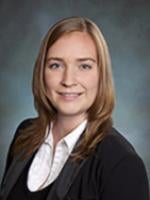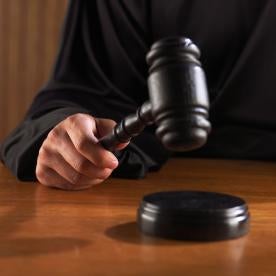On July 10, 2014, the Supreme Court of Nevada published Leavitt v. Siems, 130 Nev. Adv. Op. 54 (2014), which addressed issues related to expert testimony. This case provides two important takeaways: (1) the basic legal principle that retroactivity is the default rule in civil cases is applicable in the context of discovery; and (2) defense counsel is not permitted to have ex parte communication with a plaintiff’s treating physician, even for communications relating to non-substantive topics such as scheduling of trial testimony.
By way of background, the plaintiff brought a medical malpractice lawsuit against her Lasik corrective vision surgeon. The case proceeded to trial, with the jury returning a defense verdict. The plaintiff filed a motion for a new trial, or alternatively, for judgment as a matter of law. The trial court denied this motion and the plaintiff appealed that decision to the Nevada Supreme Court.
Retroactive Application of Decisions
The principal issue on appeal was whether the defendants’ use of exert testimony from the plaintiff’s treating physician to explain a possible alternate cause of the plaintiff’s medical condition was proper. In an opinion issued after the close of trial in the instant case, but prior to the trial court’s decisions on the motions that serve as the basis for the instant appeal, the Nevada Supreme Court clarified that a defense expert’s contradictory or alternative causation testimony need not be stated to a reasonable degree of medical probability when being used to challenge an element of plaintiff’s claim. Williams v. Eighth Jud. Dist. Court, 127 Nev. ___, 262 P.3d 360 (2011). Applying this new standard in deciding plaintiff’s motion for new trial, the trial court determined that the treating physician’s testimony was presented for the purpose of contradicting plaintiff’s theory, and not to propose an independent alternative causation theory. Id. at 5. Accordingly, the trial court found that the testimony was properly admitted at trial despite not having been stated to a reasonable degree of certainty. Id.
The appellant argued on appeal that the trial court erred in its application of Williams, as such case was not decided until after the trial had been completed. Citing the general rule that civil cases are to be applied retroactively, however, the Nevada Supreme Court disagreed and held that the trial court properly applied the principles set forth in Williams retroactively in reaching its conclusion on plaintiff’s motion for new trial. See id. at 6-7.
This case serves as an important reminder that attorneys must always update their research and retroactively apply newly published opinions, even in post-trial motion practice.
Defense Counsel May Not Have Direct Ex Parte Communication With Plaintiff’s Treating Physicians
Plaintiff argued on appeal that the trial court further erred in denying her motion for new trial on the basis of witness tampering. Billing records submitted by defendants in their post-trial motion for attorneys’ fees revealed that defense counsel had direct, unauthorized communications with the plaintiff’s treating physician and one of her disclosed expert witnesses. Defendants argued that their communications with the treating physician were not improper, but rather were necessary to schedule and coordinate the witness’s trial testimony.
As an issue of first impression, the Nevada Supreme Court addressed “whether opposing counsel may contact or communicate with a treating physician directly, or whether all communications must be through formal discovery methods.” Leavitt at 11. In analyzing the issue, the Court looked to authority in other jurisdictions, stating that “[w]hile numerous courts have already addressed this issue, no clear-cut answer has emerged” and that “[s]ome courts permit ex parte communications between defense counsel and a plaintiffs treating physician. . . . Other jurisdictions prohibit such ex parte communications undertaken without express consent.” Id. (citations omitted).
Ultimately, the Leavitt Court concluded “there is no need to allow ex parte communication with the opposing party’s experts absent express consent.” Id. at 15. In reaching this conclusion, the Nevada Supreme Court recognized that information is protected by Nevada’s statutory physician-patient privilege, NRS 49.245. Id. at 12. It noted NRCP 26(b)(4) permits written discovery and depositions of experts, but “does not contemplate ex parte communications with the opposing party’s expert witnesses.” Id. at 12-13. Finally, it also concluded that ex-parte communications are precluded by Rule 8.4 of the Nevada Rules of Professional Conduct. Id. at 13.
In addition to the above, the Court’s opinion seemed to be in part based on the observation that the communication bar does not burden the defense because it has the power to subpoena the doctor for trial. See id. at 13-14. Everyday practice, however, is not always in accord with this observation. It is common place, for example for attorneys to contact potential deponents or trial witnesses to ascertain their availability for purposes of scheduling depositions or trial. This decision precludes such communication, and instead forces parties to employ formal discovery techniques and processes for even simple non-substantive tasks and communications.
It should be noted that, under the standard applicable to a motion for new trial, the Court ultimately concluded that the communication that took place in the Leavitt case was harmless and thus no new trial was warranted. Id. at 15-16. Attorneys are cautioned to not allow this conclusion to serve as a basis for ignoring this precedent, however. Rather, because this decision expressly precludes such communications, the more prudent approach is to rely on formal discovery mechanisms and/or on opposing counsel to communicate with the opposing party’s expert witness.




 i
i

